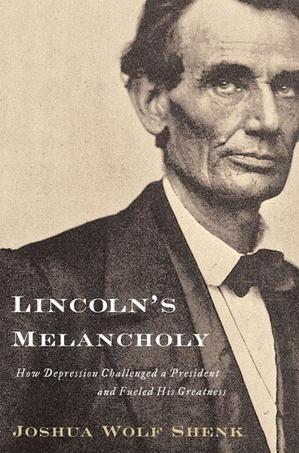5th anniversary of OurValues: After 1,300 columns, can you guess our most popular subject?

Celebrate the fifth anniversary of OurValues.org with us this week. Founded in 2008, OurValues.org was created as an online experiment in civil discussion about tough issues. Thank you for being part of our 1,300 columns — and counting! I appreciate the thousands of readers, here and around the globe, who have made this project so successful.
This week, we’ll revisit some of our most popular columns, along with some OurValues.org staff favorites.
What’s the single most popular subject? Abraham Lincoln. We’ve had quite a number of columns about Lincoln.
As the creator and regular writer of OurValues.org, I began marking this 150th anniversary year of Lincoln’s historic actions in 1863. In January, I wrote about Lincoln’s life-long struggle with depression—what at the time was known as “melancholy.” It’s a story of supreme resilience and transcendence.
Not only did my column quickly become the most-read post on OurValues.org — but it drew the interest of Lincoln scholar Duncan Newcomer. Within months, Duncan had become a regularly engaged reader and occasional writer himself. As a guest columnist, he wrote this week-long series on the 16th president that appeared in May.
That’s part of the power of OurValues.org — it draws a fascinating mix of people together, wherever they live. They contribute in various ways to this national discussion we are weaving, year by year. Together, we keep demonstrating that civility is possible in America.
Care to revisit the most popular column? Here it is in slightly edited form:
ABRAHAM LINCOLN is known the world over, but not for his lifelong struggle with chronic depression or “melancholy.” How did his mental struggles play into his life’s work? In his movie "Lincoln," Steven Spielberg clearly shows scenes in which Lincoln seems to struggle with the chronic melancholy that affected his life.
But the film underplays the central role of clinical depression in Lincoln’s life and how he managed it. Melancholy was the key to his greatness, says Joshua Wolf Shenk in Lincoln’s Melancholy: How Depression Challenged a President and Fueled His Greatness.
Lincoln’s bouts of depression were legendary among his confidants. These bouts were “just one thread in a curious fabric of behavior and thought that Lincoln’s friends and colleagues called his ‘melancholy’,” writes Shenk. “He often wept in public and recited maudlin poetry. He told jokes and stories at odd times—he needed the laughs, he said, for his survival.
As a young man he talked of suicide.” His friends put him on a suicide watch, a rare reaction in those times. Melancholy was his companion throughout his life. “His law partner William Herndon said, ‘His melancholy dripped from him as he walked.’”
Lincoln was able to manage his struggle with depression by harnessing its energy for a high purpose. Indeed, the thought that he had a big role to play—however unclear it was at the time—gave him meaning and direction. The specific meaning of his life became clear. In 1854, Shenk writes, Lincoln entered the slavery debates “with a vigorous argument that slavery must be restricted as a moral, social, and political wrong.” This led, eventually, to the Emancipation Proclamation and the Thirteenth Amendment.
Did you know about Lincoln’s struggle with chronic depression?
Do you buy Shenk’s argument that it fueled Lincoln’s greatness?
What’s your all-time favorite article on OurValues.org?
Wayne Baker is a sociologist on the faculty of the University of Michigan Ross School of Business. Baker blogs daily at Our Values and can be reached at ourvaluesproject@gmail.com or on Facebook.

